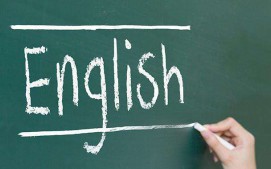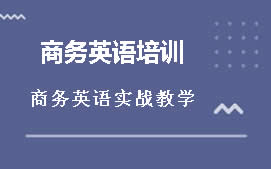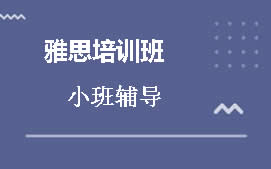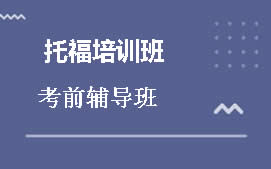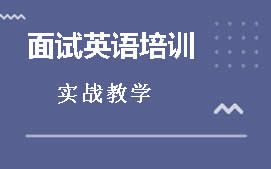在职人员场给你遇到过*须应用英语简历的外资企业吗?假如你悲剧遇上了,那么你前世一定是折翼的天使!英文简历很难写了有没有?因此 ,美联英语我今日教你外资企业初入职场英文简历秘笈攻略大全!
1. What IS a resume anyway? Remember: a Resume is a self-promotional document that presents you in the best possible light, for the purpose of getting invited to a job interview. It's not an official personnel document. It's not a job application. It's not a "career obituary"! And it's not a confessional.
2. What should the resume content be about?
It's not just about past jobs! It's about YOU, and how you performed and what you accomplished in those past jobs--especially those accomplishments that are most relevant to the work you want to do next. A good resume predicts how you might perform in that desired future job.
3. What's the fastest way to improve a resume? Remove everything that starts with "responsibilities included" and replace it with on-the-job accomplishments. (See Tip 11 for one way to write them.)
4. What is the most common resume mistake made by job hunters? Leaving out their Job Objective! If you don't show a sense of direction, employers won't be interested. Having a clearly stated goal doesn't have to confine you if it's stated well.
5. What's the first step in writing a resume? Decide on a job target (or "job objective") that can be stated in about 5 or 6 words. Anything beyond that is probably "fluff" and indicates a lack of clarity and direction.
6. How do you decide whether to use a Chronological resume or a Functional one? The Chronological format is widely preferred by employers, and works well if you're staying in the same field (especially if you've been upwardly-mobile). Only use a Functional format if you're changing fields, and you're sure a skills-oriented format would show off your transferable skills to better advantage; and be sure to include a clear chronological work history!
7. What if you don't have any experience in the kind of work you want to do? Get some! Find a place that will let you do some volunteer work right away. You only need a brief, concentrated period of volunteer training (for example, 1 day a week for a month) to have at least SOME experience to put on your resume. Also, look at some of the volunteer work you've done in the past and see if any of THAT helps document some skills you'll need for your new job.
8. What do you do if you have gaps in your work experience? You could start by looking at it differently. General Rule: Tell what you WERE doing, as gracefully as possible--rather than leave a gap. If you were doing anything valuable (even if unpaid) during those so-called "gaps" you could just insert THAT into the work-history section of your resume to fill the hole. Here are some examples:
1993-95 Full-time parent -- or 1992-94 Maternity leave and family management -- or Travel and study -- or Full-time student -- or Parenting plus community service
9. What if you have several different job objectives you're working on at the same time? Or you haven't narrowed it down yet to just one job target? Then write a different resume for each different job target. A targeted resume is MUCH, much stronger than a generic resume.
10. What if you have a fragmented, scrambled-up work history, with lots of short-term jobs? To minimize the job-hopper image, combine several similar jobs into one "chunk," for example:
1993-1995 Secretary/Receptionist; Jones Bakery, Micro Corp., Carter Jewelers -- or 1993-95 Waiter/Busboy; McDougal's Restaurant, Burger King, Traders Coffee Shop.
Also you can just drop some of the less important, briefest jobs. But don't drop a job, even when it lasted a short time, if that was where you acquired important skills or experience.
11. What's the best way to impress an employer? Fill your resume with "PAR" statements. PAR stands for Problem-Action-Results; in other words, first you state the problem that existed in your workplace, then you describe what you did about it, and finally you point out the beneficial results.
Here's an example: "Transformed a disorganized, inefficient warehouse into a smooth-running operation by totally redesigning the layout; this saved the company thousands of dollars in recovered stock."
Another example: "Improved an engineering company's obsolete filing system by developing a simple but sophisticated functional-coding system. This saved time and money by recovering valuable, previously lost, project records."
12. What if your job title doesn't reflect your actual level of responsibility? When you list it on the resume, either replace it with a more appropriate job title (say "Office Manager" instead of "Administrative Assistant" if that's more realistic) OR use their job title AND your fairer one together, i.e. "Administrative Assistant (Office Manager)"
13. How can you avoid age discrimination? If you're over 40 or 50 or 60, remember that you don't have to present your entire work history! You can simply label THAT part of your resume "Recent Work History" or "Relevant Work History" and then describe only the last 10 or 15 years of your experience. Below your 10-15 year work history, you could add a paragraph headed "Prior relevant experience" and simply refer to any additional important (but ancient) jobs without mentioning dates.
14. What if you never had any "real" paid jobs -- just self-employment or odd jobs? Give yourself credit, and create an accurate, fair job-title for yourself.
For example:
A&S Hauling & Cleaning (Self-employed) -- or Household Repairman, Self-employed -- or Child-Care, Self-employed
Be sure to add "Customer references available on request" and then be prepared to provide some very good references of people you worked for.
15. How far back should you go in your Work History? Far enough; and not too far! About 10 or 15 years is usually enough - unless your "juiciest" work experience is from farther back.
16. How can a student list summer jobs? Students can make their resume look neater by listing seasonal jobs very simply, such as "Spring 1996" or "Summer 1996" rather than 6/96 to 9/96. (The word "Spring" can be in very tiny letters, say 8-point in size.)
17. What if you don't quite have your degree or credentials yet? You can say something like:
Eligible for U.S. credentials -- or Graduate studies in Instructional Design, in progress -- or Master's Degree anticipated December 1997
18. What if you worked for only one employer for 20 or 30 years? Then list separately each different position you held there, so your job progression within the company is more obvious.
19. What about listing hobbies and interests? Don't include hobbies on a resume unless the activity is somehow relevant to your job objective, or clearly reveals a characteristic that supports your job objective. For example, a hobby of Sky Diving (adventure, courage) might seem relevant to some job objectives (Security Guard?) but not to others.
20. What about revealing race or religion? Don't include ethnic or religious affiliations (inviting pre-interview discrimination) UNLESS you can see that including them will support your job objective. Get an opinion from a respected friend or colleague about when to reveal, and when to conceal, your affiliations.
21. What if your name is Robin Williams? Don't mystify the reader about your gender; they'll go nuts until they know whether you're male or female. So if your name is Lee or Robin or Pat or anything else not clearly male or female, use a Mr. or Ms. prefix.
22. What if you got your degree from a different country? You can say "Degree equivalent to U.S. Bachelor's Degree in Economics-Teheran, Iran."
23. What about fancy-schmancy paper? Employers tell me they HATE parchment paper and pretentious brochure-folded resume "presentations." They think they're phony, and toss them right out. Use plain white or ivory, in a quality appropriate for your job objective. Never use colored paper unless there's a very good reason for it (like, you're an artist) because if it gets photo-copied the results will be murky.
24. Should you fold your resume? Don't fold a laser-printed resume right along a line of text. The "ink" could flake off along the fold.
看过上边这二十条,你对写英文简历拥有自身的构思了没有?但写个人简历光有构思还不好,你需要有浓厚的基本和英语文化的方法,因此 好好丰富自己的英语!美联英语,你可信赖的在线少儿英语学习培训知名*牌,何不在右上角的对话框填好私人信息试一试啦!
